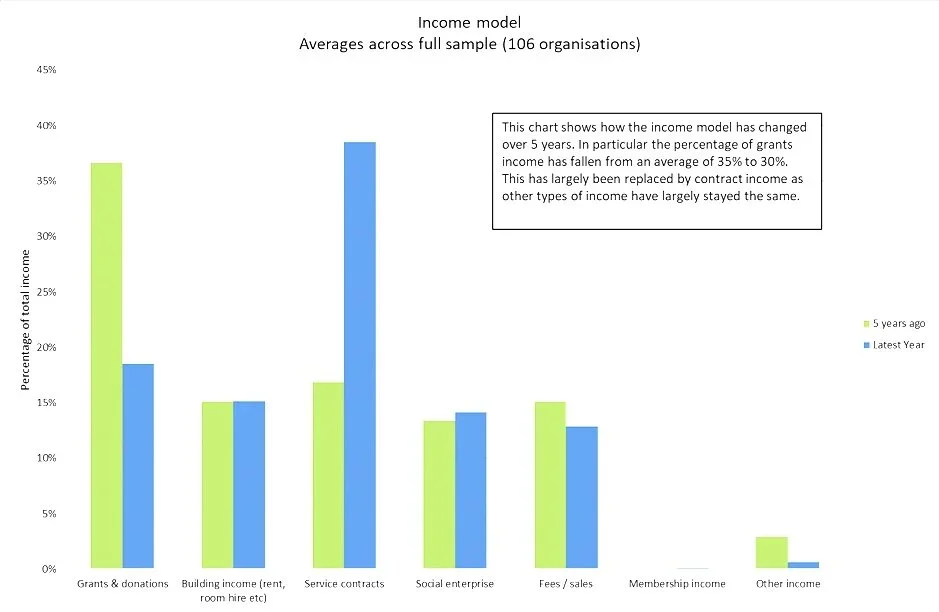Community Hubs: Understanding survival and success
In July 2019, an insightful report was published co-authored by our colleague and associate Neal Trup of Neal Howard Ltd. The report, Community Hubs, Understanding survival and success was commissioned by Local Trust and Power to Change gives really helpful insights into factors that affect survival (or otherwise) of community hub organisations.
The report is based on extensive research (focus groups, interviews and forensic examination of accounts) involving over 100 community hub organisations; community-led not-for-profit organisations that own or manage one or more community hubs (buildings, or parts of buildings, that are multi-purpose, open and accessible to the local community, and that provide services that the local community need with community-led governance structures).
The primary research question was “How can community hubs be financially viable?” It’s four main conclusions are:
Community hub organisations walk a financial tightrope. They have had to:
Adapt fast to a loss in grant income (and growth in contract income - at least for larger community hub organisations).
Control costs with an iron fist.
Operate on very tight margins.
Work with inadequate (sometimes negative) reserves.
Asset ownership improves income and impact, but can increase risk.
The ownership of an asset is associated with a level of income 3-times higher than for organisations who do not own the building they operate from.
There is no single sure-fire business model for financial success.
Financial success and sustainability do not depend primarily on business models. There was no evidence that any particular business model is the best way to achieve success.
Rather the quality of leadership and governance, and local contextual factors, are always significant, and often these are more important than particular income-generating or cost- controlling strategies.
There is an abundance of know-how and skill within the community sector itself.
Many community hub organisations are very well managed, with tight financial controls.
The need in the sector is more about capacity and resources rather than skills.
“Our survey identified the following characteristics of community hub organisations:
• They have a very local area of benefit: 58% are hyper-local (small neighbourhood).
• Most operate from just one building: only 11% have more than one community hub.
• Most have been operating for more than five years, and 41% for ten years or more.
• Most own their building (41%) or have a long lease (30%). Only 29% have a short lease.
• They operate a very wide range of activities: most commonly, the provision of a community hall or other meeting space, health and well-being activities, offices or workspace for local community/voluntary groups, arts and cultural activities, sports and fitness activities, and educational activities.
• Not all activities are delivered by the community hub organisation: in many cases they are delivered wholly or in part by others who make use of the building (or adjacent land) for that purpose.”
This research will now inform a subsequent piece of work that has been commissioned by Local Trust and Power to Change to produce guidance and tools for setting up and maintaining viable community hubs. Watch this space!
Meanwhile, if you have any questions about the research or it’s implications please do either contact Neal Howard Ltd or drop us a line at julian@almondtreeconsulting.co.uk to arrange free initial telephone discussion.

